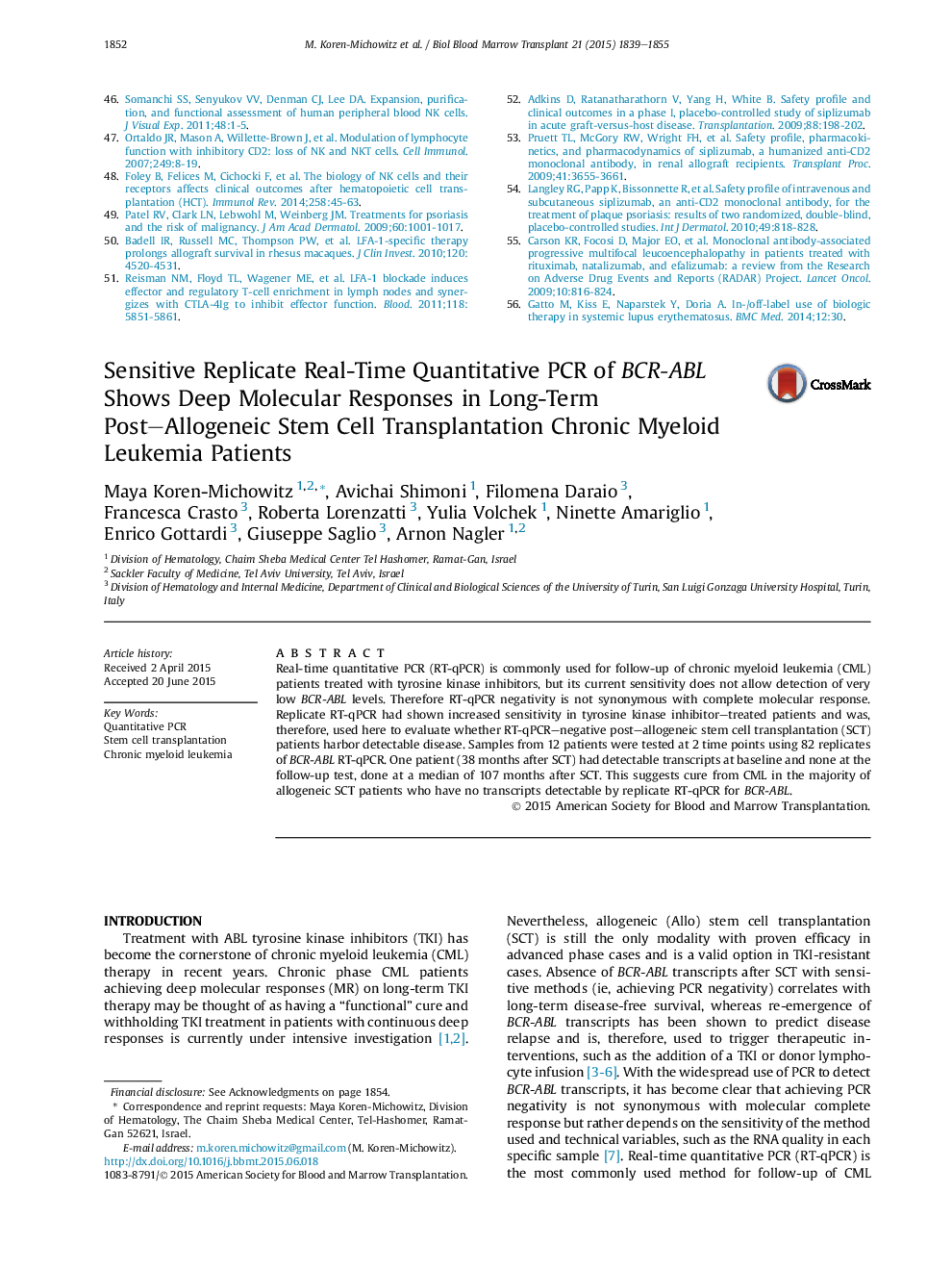| Article ID | Journal | Published Year | Pages | File Type |
|---|---|---|---|---|
| 2101328 | Biology of Blood and Marrow Transplantation | 2015 | 4 Pages |
•Patients with chronic myeloid leukemia after stem cell transplantation were studied with a sensitive quantitative PCR•Replicate real-time quantitative PCR uses RT-qPCR methods with 82 replicates per sample•Replicate real-time quantitative PCR increased assay sensitivity to ≥ 10−5.5 in 95% of studied cases•At 4 years after stem cell transplantation, all tested patients were negative for BCR-ABL including 5 in accelerated phase
Real-time quantitative PCR (RT-qPCR) is commonly used for follow-up of chronic myeloid leukemia (CML) patients treated with tyrosine kinase inhibitors, but its current sensitivity does not allow detection of very low BCR-ABL levels. Therefore RT-qPCR negativity is not synonymous with complete molecular response. Replicate RT-qPCR had shown increased sensitivity in tyrosine kinase inhibitor–treated patients and was, therefore, used here to evaluate whether RT-qPCR–negative post–allogeneic stem cell transplantation (SCT) patients harbor detectable disease. Samples from 12 patients were tested at 2 time points using 82 replicates of BCR-ABL RT-qPCR. One patient (38 months after SCT) had detectable transcripts at baseline and none at the follow-up test, done at a median of 107 months after SCT. This suggests cure from CML in the majority of allogeneic SCT patients who have no transcripts detectable by replicate RT-qPCR for BCR-ABL.
